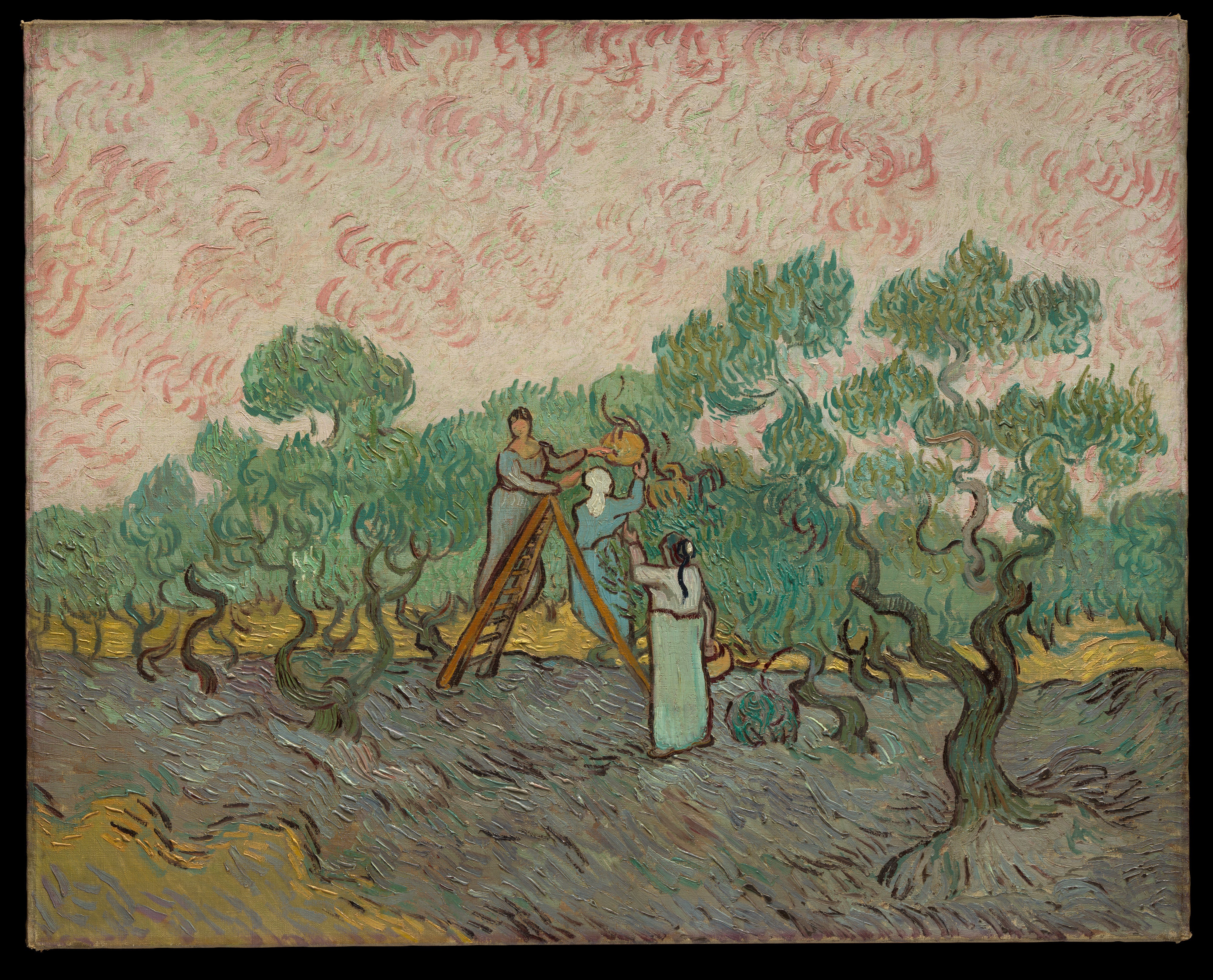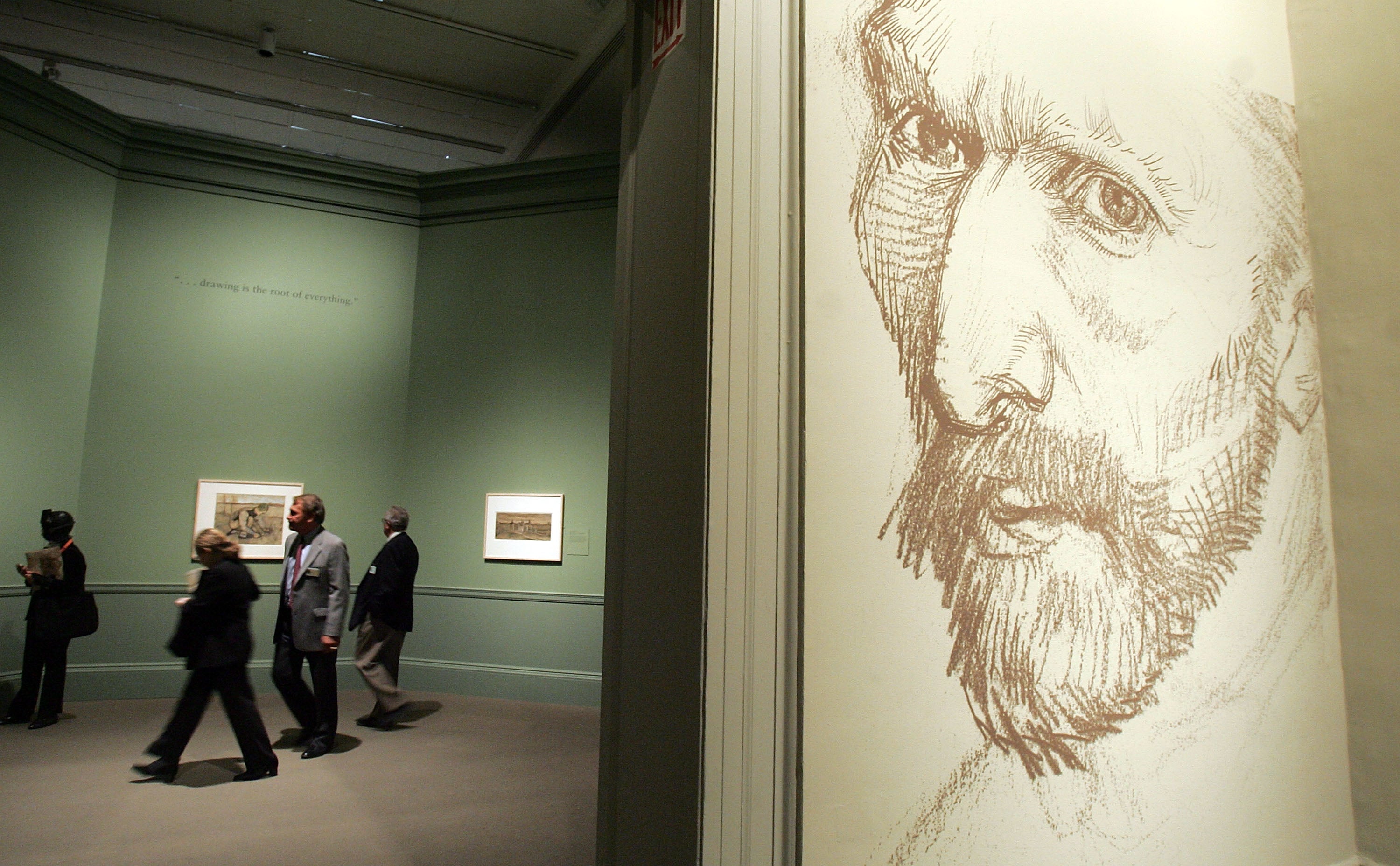
The heirs of a Jewish family are suing the Metropolitan Museum of Art, claiming a Vincent van Gogh oil painting it sold was looted from their relatives by the Nazis.
The lawsuit claims that Hedwig and Frederick Stern bought the painting, titled Olive Picking, in 1935. The same year, the couple was forced to flee their home in Munich, and were never reunited with the painting.
The Met bought the piece in 1956 for $125,000, and later sold it to a Greek shipping magnate in 1972. The lawsuit argues that the Met "knew, or should have known" that the painting was likely looted by the Nazis.
The Sterns heirs are seeking the return of the painting as well as damages from the Met.
“In the decades since the end of world war two, this Nazi-looted painting has been repeatedly and secretly trafficked, purchased and sold in and through New York,” the lawsuit claims, according to the New York Times.

The Sterns fled Munich for California with their six children but were prohibited from taking the artwork by the Nazi regime, the suit claims.
“Before the family’s emigration, the Nazi government declared the painting to be ‘German cultural property’ and prohibited the Sterns from bringing the painting (and others in their collection) with them abroad,” attorney for the heirs said.
“After obtaining permission from a Nazi official, a ‘trustee’ appointed by the Nazis sold the painting in Germany on the Sterns’ behalf, but the proceeds of the sale were deposited in a ‘blocked account,’ which the Nazis later confiscated,” they added.
The painting is now on display at a museum in Athens operated by the Basil & Elise Goulandris Foundation. The Goulandris couple purchased the painting from the Met in 1972. The foundation and a surviving nephew of Goulandris are named in the lawsuit as defendants.
The lawsuit claims that the Goulandris family "and its related entities have hidden and obscured the painting's ownership and location from plaintiff."
“To this day, the Goulandris defendants continue to conceal how and when the BEG came into possession of the painting; the Stern family’s ownership of the painting from 1935 to 1938; and the facts that the Nazis looted the painting from the Stern family, coerced the Sterns into selling it via a Nazi-appointed agent, and confiscated the proceeds of the sale,” the lawsuit says.
The Stern heirs claim that because the Met had employed Theodore Rosseau Jr., "one of the world's foremost experts on Nazi art looting," as its curator of European paintings, it should have suspected the painting was looted.

The Met has responded to the lawsuit, saying it "takes seriously its longstanding commitment to address Nazi-era claims."
“At no time during the Met’s ownership of the painting was there any record that it had once belonged to the Stern family – indeed, that information did not become available until several decades after the painting left the museum’s collection,” a spokesperson for the museum added.
In 2000, the Met began the Provenance Research Project, whose purpose was to evaluate the museum's collection to determine whether or not any pieces obtained during the Nazi-era were looted, and to return any such pieces to their rightful owners or heirs.
At least one painting from another legendary artist — The Garden of Monet's House in Argenteuil, by Claude Monet — was returned as a result of the research project.
In its statement, the Met said it sold off the painting because it was deemed to be "of lesser quality" than some of the other works it had at the time.
“The Met’s sale of the Olive Picking met the museum’s strict criteria for deaccessioning – specifically, it was recorded that the work was deemed to be of lesser quality than other works of the same type in the collection," the statement continued. "While the Met respectfully stands by its position that this work entered the collection and was deaccessioned legally and well within all guidelines and policies, the museum welcomes and will consider any new information that comes to light.”
The Stern heirs filed a similar complaint in 2022, but a California court dismissed the lawsuit in 2024. Attorneys appealed the ruling, but the case was dismissed again in May.
A lawyer representing the Goulandris Foundation said the lawsuit was a baseless "smear" and would likely be tossed out again.
“The Goulandris Foundation is a highly prestigious organization in Athens. The attempt to sue and smear the foundation and the Goulandris family in the U.S. upon misleadingly incomplete allegations was previously dismissed, twice," the attorney said. "We are confident it will be again.”
The Independent has requested comment from the Met and the Goulandris Foundation.
Germany to give more than $1 billion for Holocaust survivors' home care in 2026
If Trump’s East Wing demo shocks you, check out what he did to these priceless works
Michael Smuss, who fought Nazis with Molotov cocktails during the Warsaw Ghetto Uprising, dies at 99
Trump-Xi summit might have ended with tariffs truce but major questions remain
Illinois gov begs ICE to pause operations over Halloween so families can celebrate
Alaska typhoon dispersed thousands of ancient artifacts from early Yup’ik community







